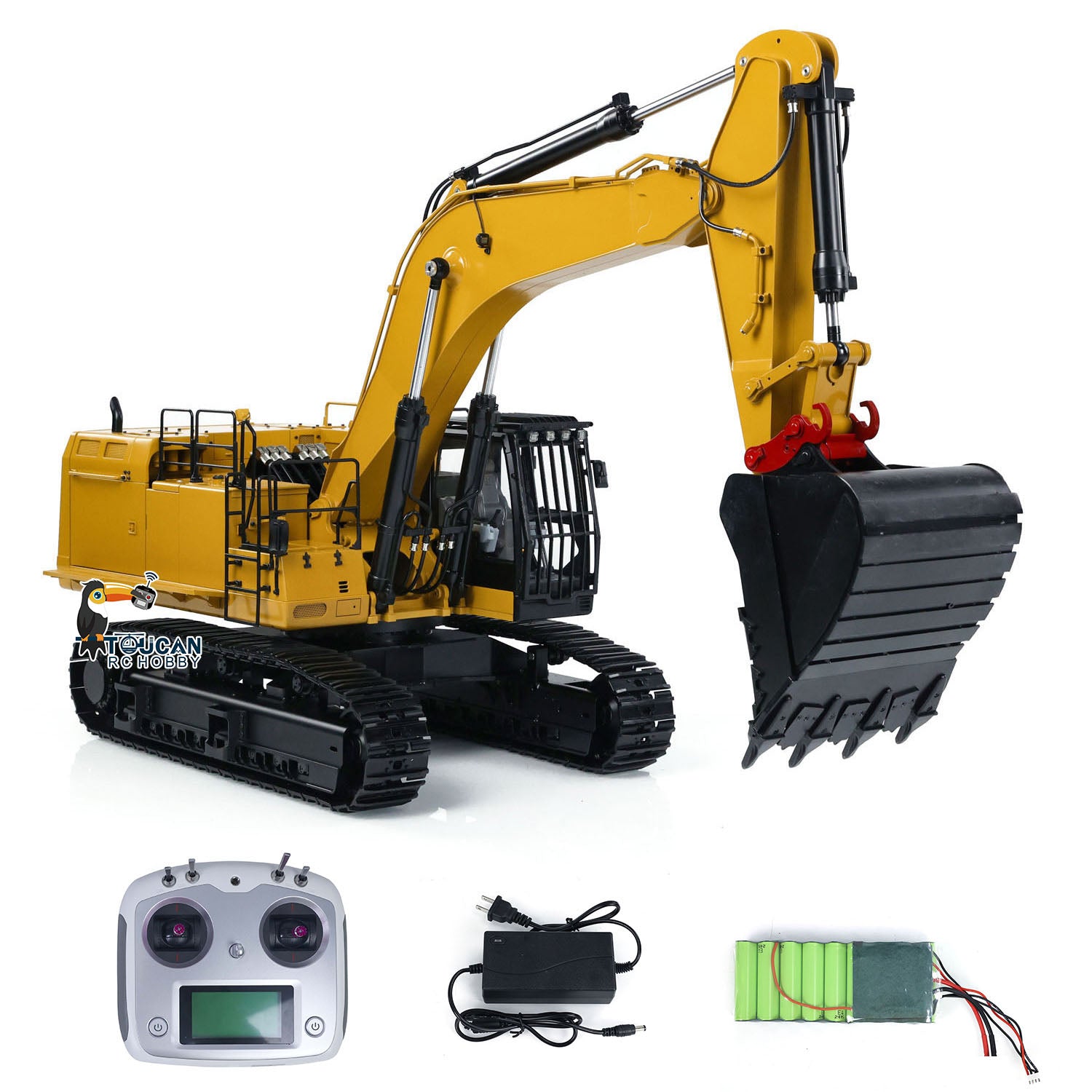Recognizing Exactly How Excavator Functions and Its Effect On Performance
Excavators play a crucial function in construction and mining operations, counting on a complex interaction of hydraulic and mechanical systems. Their capacity to carry out a selection of jobs rests on both their style and the technology incorporated within. Comprehending these parts can substantially affect operational effectiveness and efficiency. As developments continue to improve the sector, one must take into consideration exactly how these adjustments will influence future methods and performance.
The Basics of Excavator Mechanics

The Role of Hydraulic Systems in Excavators
At the heart of excavator operation lies the hydraulic system, which plays an essential function in powering the maker's motions and features. This system uses pressurized hydraulic liquid to transfer power, allowing numerous actions such as swinging, training, and digging. By taking advantage of the principles of hydraulics, excavators can execute tasks with exceptional accuracy and pressure, boosting general functional efficiency.The hydraulic system consists of vital parts, consisting of pumps, shutoffs, and cylinders, which work together to control the flow and instructions of the fluid. When the driver involves the controls, the hydraulic liquid is guided to details cyndrical tubes, translating the operator's commands into physical activity. This device permits for receptive and smooth activities, which are necessary in construction and excavation environments. double e volvo rc excavator. The effectiveness of the hydraulic system directly influences the efficiency and flexibility of the excavator, making it a vital aspect in contemporary excavation processes
Trick Parts of an Excavator
Understanding the vital elements of an excavator is necessary for comprehending exactly how this powerful machine runs. An excavator is composed of several substantial components, consisting of the undercarriage, residence, arm, bucket, and boom. The undercarriage offers stability and wheelchair, commonly including wheels or tracks to navigate different surfaces. Your home has the engine and hydraulic systems, permitting the driver to regulate motion and power the equipment. The boom expands from your house, allowing vertical reach, while the arm attaches to the container, assisting in excavating and lifting operations.Additionally, the taxi houses the operator, geared up with controls for specific maneuvering. Each of these parts plays a vital duty in the excavator's general functionality, adding to its performance and efficiency on building websites. Comprehending these parts helps in preserving and maximizing excavator performance, making certain tasks are finished safely and properly.
Accessory Versatility and Its Benefits
Attachment adaptability is an important element of excavators, allowing drivers to switch between different tools tailored for details tasks. This versatility not only boosts job effectiveness however additionally contributes to cost-effectiveness by minimizing the need for several equipments. Understanding the different types of attachments available can significantly impact the general efficiency and performance of an excavator on task sites.
Kinds of Add-ons
While excavators are largely identified for their excavating capacities, their real convenience hinges on the vast selection of add-ons readily available. These add-ons improve the excavator's functionality, allowing it to do various tasks beyond excavation. Usual add-ons consist of pails (for excavating and scooping), hydraulic thumbs (for grasping products), and augers (for drilling openings) Grapples are used for moving and taking care of debris, while rippers can damage up difficult surfaces. Other specialized accessories, such as plates and plows, allow excavators to adapt to specific work requirements. This diversity not just raises the equipment's utility throughout various sectors, including demolition, landscape design, and building, but also enables drivers to tailor their tools to satisfy certain project demands effectively.
Boosted Work Performance
Maximizing task effectiveness is a primary benefit of using numerous excavator accessories. Different accessories enable an excavator to do multiple jobs without needing to switch equipment, conserving important time and labor. Making use of a hydraulic hammer can break concrete while a pail add-on can dig deep into soil, making it possible for a smooth workflow. This versatility decreases downtime connected with equipment modifications and enhances efficiency on-site. Additionally, specialized attachments enhance precision in jobs such as grading or landscape design, causing greater high quality outcomes. The capability to adapt to different task needs not just streamlines operations but additionally lessens the requirement for additional machinery, making sure that projects are completed swiftly and effectively. In general, add-on flexibility significantly adds to increased task performance in excavation work.
Cost-Effectiveness and Convenience
Cost-effectiveness is imp source a considerable benefit of making use of versatile excavator attachments. These accessories enable a single excavator to do several tasks, minimizing the requirement for additional machinery and labor - double e volvo rc excavator. By switching between pails, hammers, and grapples, drivers can take on numerous projects, from excavating to demolition, thus making best use of tools use. This flexibility not just decreases operational prices but additionally decreases downtime linked with changing equipment. Furthermore, the capacity to personalize excavators with specialized add-ons enhances performance, as they can efficiently deal with diverse tasks according to job needs. In conclusion, the combination of cost-effectiveness and flexibility in excavator attachments adds to enhanced functional effectiveness and source allocation in building and excavation tasks

Advanced Innovation in Modern Excavators
Modern excavators are significantly furnished with innovative modern technology that transforms excavation procedures. Automation improves procedures, while improved fuel efficiency lowers functional expenses. Additionally, clever control systems improve accuracy and safety, marking a substantial evolution in excavation tools.
Automation in Excavation Processes
As excavation innovation evolves, automation has become a critical part in enhancing performance and accuracy on task sites. Modern excavators are furnished with sophisticated automated systems that facilitate jobs such as grading, excavating, and trenching with minimal driver treatment. These systems make use of sensors, GPS, and device knowing algorithms to ensure accurate positioning and depth control, significantly reducing the margin for error. Additionally, automation allows drivers to concentrate on strategic decision-making instead than hand-operated controls, bring about improved efficiency generally. Such developments not just enhance process however additionally improve safety by decreasing human error in intricate procedures. The assimilation of automation in excavation procedures stands for a significant improvement in building and construction technology, driving the market in the direction of higher effectiveness and performance.
Enhanced Fuel Effectiveness
Innovations in innovation have additionally caused substantial enhancements in fuel performance for modern excavators. Modern equipments are furnished with innovative engines that maximize power outcome while decreasing gas consumption. These engines use cutting-edge burning modern technologies, such as turbocharging and straight gas injection, to boost performance and efficiency. In addition, light-weight products in construction reduce overall weight, allowing for much less energy expenditure during operation. The introduction of variable rate controls enables drivers to readjust engine efficiency according to certain jobs, further lessening fuel use. As a result, these improvements not only lower operational costs however also add to environmental sustainability by lowering exhausts. Overall, improved fuel performance in excavators is an important growth that bolsters productivity and economic viability in the building sector.
Smart Control Systems
While operators browse increasingly complicated work sites, clever control systems in excavators have become crucial devices for enhancing efficiency and precision. These innovative technologies make use of sensors and formulas to keep track of various parameters such as lots weight, terrain conditions, and operational efficiency. By immediately readjusting hydraulic features, smart systems enhance equipment efficiency, causing boosted productivity and minimized wear on components. Additionally, drivers benefit from user-friendly interfaces that supply real-time responses and diagnostics, permitting educated decision-making. This integration of technology not only enhances procedures yet likewise minimizes human mistake, adding to much safer job settings. As the building and construction market proceeds to progress, smart control systems will play an important role in shaping the future of excavator efficiency and performance.
Enhancing Functional Effectiveness With Excavators
Excavators play an essential role in improving functional efficiency across different building and construction and excavation tasks. Their adaptability permits multiple jobs, including lifting, material, and excavating handling, which streamlines operations and minimizes the need for added equipment. With powerful hydraulic systems, excavators can do durable jobs with accuracy, significantly reducing the time needed to total jobs. The combination of advanced innovation, such as general practitioner and automated controls, additionally optimizes their operation, enabling drivers to accomplish better precision and lower product waste. Additionally, contemporary excavators are developed to take in much less gas and decrease discharges, contributing to both cost savings and ecological sustainability. By using excavators successfully, building groups can improve efficiency, fulfill project target dates, and boost total website administration. This multifunctionality and efficiency make excavators important devices in the contemporary building landscape.
The Future of Excavators in Construction and Mining Industries
As the construction and mining markets develop, the future of excavators is positioned for substantial transformation driven by technical technology and transforming functional demands. Breakthroughs in automation and expert system are reshaping excavator capabilities, permitting improved accuracy blog and effectiveness in procedures. Independent excavators are arising, decreasing the demand for human intervention and decreasing the danger of accidents.Moreover, the assimilation of telematics and IoT modern technology enables real-time tracking of maker performance and predictive maintenance, optimizing uptime. Eco-friendly designs, consisting of electrical and hybrid designs, are acquiring traction, straightening with sustainability objectives within the industry.Additionally, making use of innovative materials and lighter styles improves fuel efficiency while maintaining performance criteria. As these fads development, excavators will certainly play an important duty in meeting the increasing demands for performance and security in building and construction and mining, inevitably changing operational landscapes.
Frequently Asked Inquiries
How Do Weather Conditions Affect Excavator Efficiency?

Climate condition significantly affect excavator performance, as rainfall and mud can impede grip and stability, while extreme temperatures might influence hydraulic systems. Operators must adjust to these variables to assure ideal performance and safety and security throughout operations.
What Safety Steps Should Operators Follow While Making Use Of Excavators?
Precaution for excavator operators include using proper personal safety tools, conducting pre-operation inspections, guaranteeing appropriate communication with ground personnel, maintaining a secure distance from overhanging risks, and sticking to well established functional protocols to stop mishaps.
Exactly How Typically Should Excavators Be Preserved for Optimal Efficiency?
Excavators must be kept on a regular basis to ensure peak efficiency, usually every 250 operating hours or as defined by the manufacturer. Routine checks improve reliability, stop unforeseen break downs, and extend the lifespan of the equipment.
What Is the Typical Lifespan of an Excavator?
The typical life expectancy of an excavator commonly varies from 10,000 to 15,000 hours of operation. Factors affecting Read Full Article long life consist of maintenance techniques, operating conditions, and the quality of the machine itself, affecting total efficiency and efficiency.

Can Excavators Operate Unequal Surface Effectively?
Excavators can operate efficiently on unequal terrain due to their verbalized designs and adjustable tracks. These functions permit them to preserve security and traction, making it possible for reliable operation in difficult environments frequently come across in building and landscaping jobs. Each of these components plays a vital duty in the excavator's overall functionality, contributing to its performance and performance on building websites. Maximizing task efficiency is a key benefit of using different excavator attachments. While drivers browse significantly intricate work sites, wise control systems in excavators have actually emerged as important tools for enhancing efficiency and accuracy. Excavators play a necessary role in boosting operational effectiveness across different building and construction and excavation tasks. Developments in automation and man-made intelligence are improving excavator abilities, allowing for enhanced accuracy and efficiency in procedures.
Comments on “Improving Safety on Job Sites with a rc excavator”